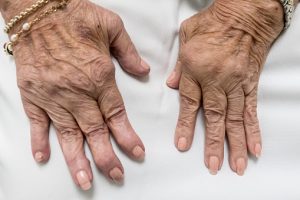
As with any autoimmune disease, the immune system acts wrongfully and attacks different areas of the body, leading to destruction and symptoms. In the case of rheumatoid arthritis, the immune system attacks the joints causing swelling, pain, stiffness, and even deformation.
It is well known that women are at a higher risk of developing rheumatoid arthritis compared to men. Now, scientists have revealed that joint pain is worse among women who have experienced menopause.
The researchers found menopause to have a significant impact on the level and rate of decline of rheumatoid arthritis.
The researchers analyzed over 8,000 rheumatoid arthritis patients and found that pre-menopausal women had a slower rate of decline compared to post-menopausal women. Women who experienced menopause suffered from worsened joint pain along with stiffer joints. Unfortunately, the reason for this is still very much unknown.
Lead author Elizabeth Mollard explained, “Further study is needed as to why women with rheumatoid arthritis are suffering a greater decline in function after menopause. Not only is this decline causing suffering for women, it is costly to both individuals and the healthcare system as a whole. Research is specifically needed on the mechanism connecting these variables with the eventual goal of identifying interventions that can maintain or improve function in postmenopausal women with rheumatoid arthritis.”
It is known that pregnant women experience improved rheumatoid arthritis symptoms, but these symptoms worsen post-pregnancy.
Regardless of where you are in your life, it’s important that you work closely with your doctors to manage your rheumatoid arthritis symptoms.
Related: Menopause and depression: Causes of menopausal and post-menopausal depression